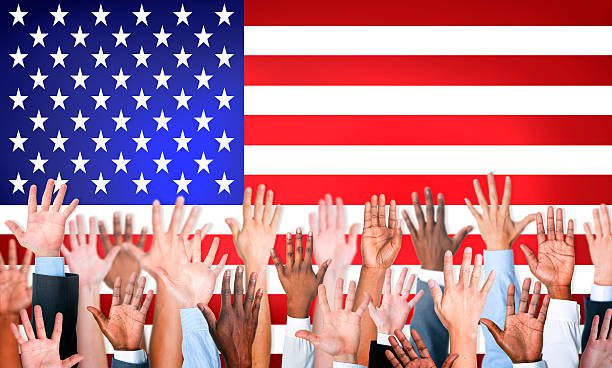At its core, a conspiracy theory suggests that powerful, often sinister groups orchestrate major events behind the scenes, usually for political gain. In U.S. politics, these theories carry a negative connotation, frequently serving as a tool to damage opponents, sow distrust, and undermine institutions. The 2024 presidential election has been no exception, with conspiracy narratives being weaponized to discredit rivals and shape public perception.
Donald Trump, the Republican presidential nominee, has frequently used conspiracy theories as a political tool, leveraging them to energize his base and attack opponents. Meanwhile, Kamala Harris, the Democratic nominee, has countered with sharp rebukes, highlighting Trump’s alleged misconduct, including inciting an insurrection, abusing power, and undermining democracy. In her acceptance speech at the Democratic National Convention, she urged voters not to allow a return to the chaos and divisiveness of Trump’s presidency.
Conspiracy Theories in the 2024 Election: Questioning Kamala Harris’s Race
On July 31, 2024, during an interview with the National Association of Black Journalists, Trump was asked if he believed Harris, the first Black woman and first Indian American major party nominee, was a “DEI hire.” In response, he questioned her racial identity, saying:
“And she was always of Indian heritage, and she was only promoting Indian heritage. I didn’t know she was Black until a number of years ago when she happened to turn Black. And now she wants to be known as Black. So I don’t know. Is she Indian or is she Black?”
Trump later posted a video on Truth Social, calling Harris a “stone-cold phony” and displaying past news articles referring to her as Indian American, seemingly to cast doubt on her Black identity. His remarks were widely criticized as racist and dismissive of multiracial identity.
Claim That Jewish Democrats Hate Israel
On March 18, 2024, Trump faced backlash for stating that “any Jewish person that votes for Democrats hates their religion” and that they “hate everything about Israel.” His campaign doubled down, claiming that the Democratic Party had become “a full-blown anti-Israel, antisemitic, pro-terrorist cabal.”
Jewish organizations condemned the remarks. Jonathan Greenblatt of the Anti-Defamation League called them “defamatory and patently false,” while Amy Spitalnick of the Jewish Council for Public Affairs accused Trump of normalizing dangerous antisemitic tropes. Critics argued that Trump was promoting the notion of “dual loyalty,” a long-standing antisemitic stereotype.
Dehumanizing Rhetoric on Immigration
Throughout his 2024 campaign, Trump repeatedly used inflammatory language to describe undocumented immigrants. He referred to them as “animals,” “not people,” and even compared them to fictional serial killer Hannibal Lecter. At rallies, he recited lyrics from the 1968 song The Snake, likening immigrants to venomous creatures.
Trump also falsely claimed that foreign governments were deliberately sending criminals and terrorists to the U.S. His remarks were widely criticized for dehumanizing immigrants and fueling xenophobia.
Poisoning the Blood Comment
In an October 2023 interview, Trump said undocumented immigrants were “poisoning the blood of our country,” a phrase historically linked to white supremacist ideology. The term closely echoes Adolf Hitler’s writings in Mein Kampf about racial purity.
Jonathan Greenblatt of the Anti-Defamation League denounced the comment as “racist, xenophobic, and despicable.” However, Trump’s campaign defended the phrase as “a normal expression used in everyday life.” Trump has since repeated the phrase at multiple rallies, despite mounting criticism.
The Dangers of Political Conspiracy Theories
While conspiracy theories can serve as effective political weapons, their broader impact is deeply harmful. They foster distrust, deepen racial and political divisions, and erode democratic norms. The 2024 election cycle has shown how such narratives can shape public discourse, often at the expense of truth and unity.
As political actors, including Trump, continue to use conspiracy theories for political gain, the challenge remains: Can American democracy withstand this culture of misinformation, or will it succumb to the chaos it breeds?










